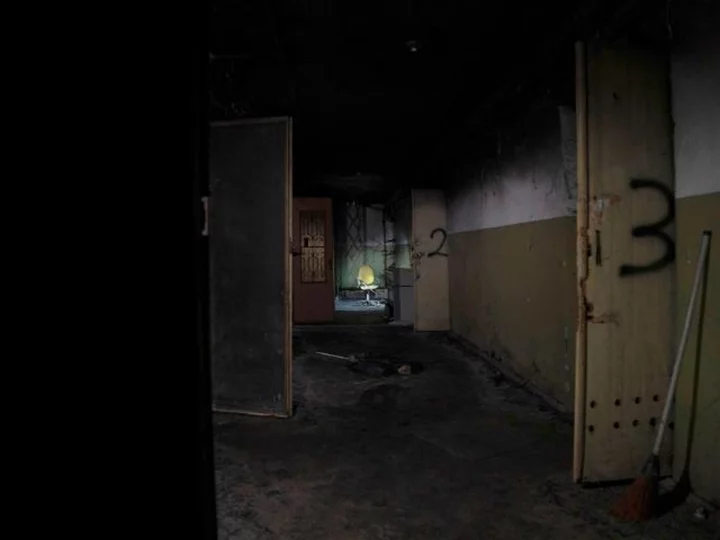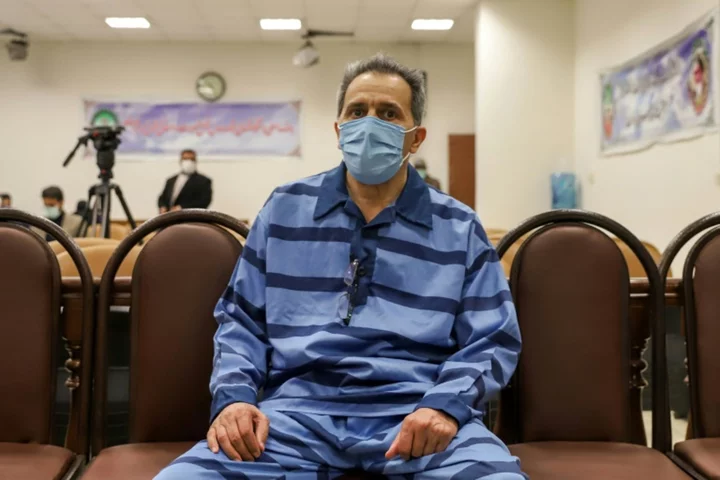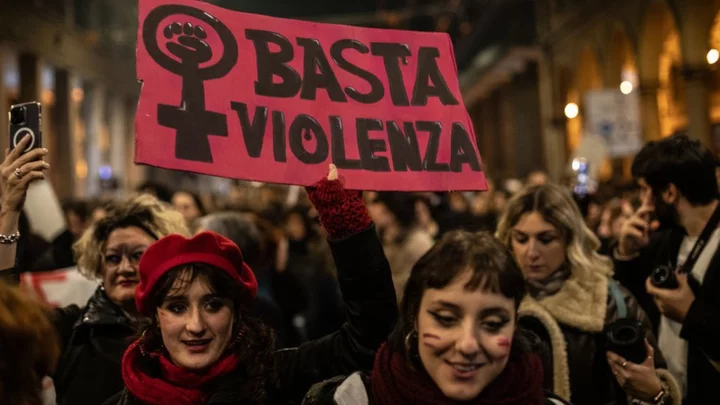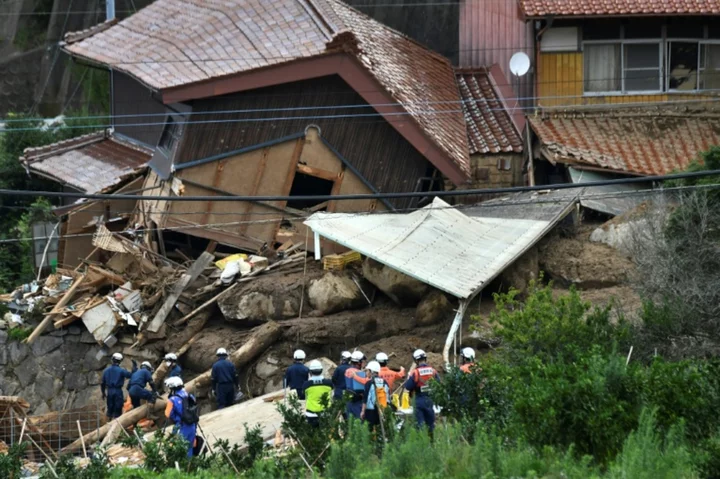Nearly half of Ukrainians held in Russian detention centers in Kherson were subjected to widespread torture including sexual violence, according to a report published Wednesday.
The report reveals analysis of an initial pool of 320 cases of detention in Kherson, across more than 35 identified detention centers. It was compiled by a Mobile Justice Team, part of the UK, EU and US-sponsored Atrocity Crimes Advisory Group (ACA) and set up by international human rights law firm and foundation, Global Rights Compliance, to support Ukraine's Office of the Prosecutor General (OPG).
Of those victims, at least 43% explicitly mentioned practices of torture in the detention centers, citing sexual violence as a common tactic imposed on them by Russian guards, on both male and female prisoners, with preliminary results showing military personnel were most likely to experience torture in the detention centres. One of the authors of the report says those with families in the military were also targeted.
"A lot is just punishment, and in, in addition to punishment for [their family member's] actual military service, it's also punishment, it seems for being a Ukrainian citizen really," Anna Mykytenko, senior legal adviser and Ukraine country manager for Global Rights Compliance told CNN.
According to the report, at least 36 victims from the pool analyzed mentioned the use of electrocution during interrogations, often genital electrocution by Russian guards. Other victims mentioned threats of genital mutilation, and at least one victim was forced to witness the rape of another detainee by a foreign object covered in a condom.
"In relation to men, it's more the majority of crimes is sexualized torture, and that's usually torture of genitalia so that's a form of punishment [for being Ukrainian] and kind of precludes them from having children," Mykytenko adds.
The report adds that suffocation, waterboarding, severe beatings and threats of rape were other techniques commonly used against victims by Russian guards in the Kherson torture chambers, according to the specialist unit. Mykytenko says these patterns of rape and torture point towards a Russian intent to eradicate Ukrainian identity.
"There is sort of an intent to destroy or eliminate Ukrainian identity because in some cases, it can be seen that those caught or, sometimes almost hunted for, had Ukrainian flags or other state symbols," she said.
'Difficult crime to prove'
Barrister Wayne Jordash, managing partner and co-founder of Global Rights Compliance, shared a similar view.
"The torture and sexual violence tactics the Office of the Prosecution is uncovering from the Kherson detention centres suggests that Putin's plan to extinguish Ukrainian identity includes a range of crimes evocative of genocide," he said in a statement accompanying the report. "At the very least, the pattern that we are observing is consistent with a cynical and calculated plan to humiliate and terrorise millions of Ukrainian citizens in order to subjugate them to the diktat of the Kremlin."
Mykytenko does believe some of the patterns seen in Kherson could eventually be considered genocidal, though she acknowledges it is difficult to prove and requires further investigation.
"There are some indicators [of genocide]" she says. "Genocide is a very difficult crime to prove because of the special intent. It's rarely direct enough to be able to prove beyond reasonable doubt this early, but we are working to provide enough support for the Office of the Prosecutor General for them to be able to establish if the evidence supports this finding."
Mykytenko says these findings are just a preliminary analysis of some of the detention cases, which she says suggests cases of torture may have been even more prevalent that currently thought. She also says, Ukrainians in regions currently under Russian occupation may be subjected to harsher and more widespread torture.
"Based on the trends that we saw that the longer the occupation was, the more severe are the crimes and the higher numbers of crimes were committed," she explains, adding that Ukrainian advances on the frontline also intensified the use of torture. "Given the liberation of the parts of the Kherson region last year, I imagine that the there are some crimes committed in retaliation for that."
"Also maybe this year with the ongoing counter offensive," she adds, cautioning that on all of this, further investigation is needed.
Russia has repeatedly denied accusations of torture and human rights abuses in Ukraine despite overwhelming evidence to the contrary, investigated, compiled and shared by international human rights organizations and news organizations. Russian officials have not yet commented on the report.









